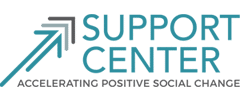According to a 2021 study by BoardSource, Leading with Intent, nearly 80 percent of all nonprofit board members lack knowledge about the full breadth of their roles and responsibilities as board members.
That a large majority of respondents fall into this category isn’t surprising. In our experience, it’s not uncommon for early-stage organizations to have first-time board members who have been recruited by the founder and don’t have the broader context for why and how individuals serve on a board. It’s also not uncommon for individuals to join a board out of passion for the organization’s mission without fully understanding that their board service includes legal and fiscal oversight responsibilities (Duty of Care, Duty of Loyalty, Duty of Obedience) and a serious time commitment. What’s less common, however, are boards that can create the space for individuals to openly admit that “I’m not entirely clear on my role or my responsibilities as a board member.” That level of openness, transparency, and vulnerability can be deeply uncomfortable; many times it’s easier to say nothing.
One way to create the space for dialogue and to measure a board’s performance (and keep it on track) is through an annual board self-assessment, in which board members are asked to rate the board’s performance in all areas of governance. A board self-assessment not only allows board members to benchmark their performance against other nonprofit boards, it can also build knowledge and awareness, or serve as a reminder of the full breadth of responsibilities, including fundraising, ambassadorship, evaluating the ED’s performance, encouraging a healthy board culture, and more.
If you’re wondering how much you’ll spend, there are many tools from which to choose that range in price from free to close to $1,000. You’re also going to spend time following up with board members to complete their surveys and then scheduling time to unpack and discuss the results together. And if you’re wondering what the return on that investment will be, that will depend. But we’ve seen that a board self-assessment process that provides all board members an opportunity to voice any concerns, provide feedback, and learn more about their roles and responsibilities as board members can be transformational when done regularly. If you want to learn more, feel free to schedule some “office hour” time with us to discuss.
